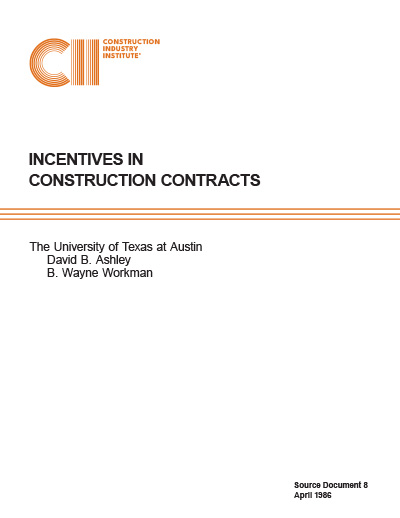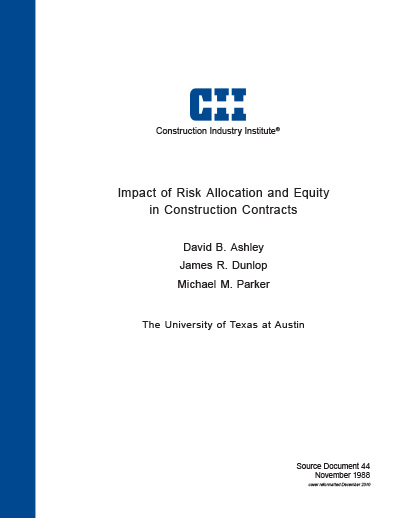
Incentives in Construction Contracts
Incentives are a basic part of any construction contract. They promote an attitude of motivation in the contractual relationship and take the form of inducements, encouragements, and threats. Effective contractual motivation requires the adoption, at least indirectly, of the owner’s project objectives by the contractor.
Incentives are a tool used by owners in contract administration to adjust the contractor’s fee. The adjustment is made for variations in contractor’s fee. The adjustment is made for variations in contractor performance from an established standard set by the owner. The owner’s expectations must, therefore, be outlined in the incentive program along with the measures of performance. Contractor performance is normally categorized into the areas of cost, schedule, or quality. Performance measures used in an incentive program should be:
- Perceived as valid measures,
- Flexible enough to meet changing conditions, and
- Easily administered.
Many owners believe that incentive programs are not easily administered and, in fact, are accompanied by additional administration difficulties. The incentive program must be structured to maintain a harmonious relationship between the owner and contractor.



